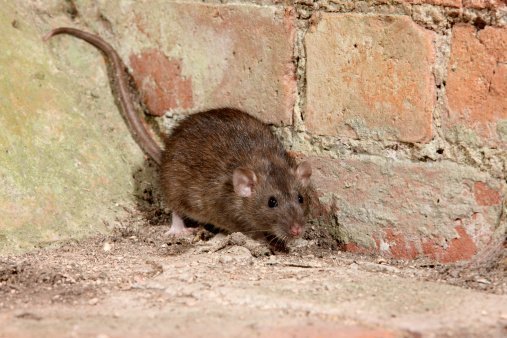
According to a town health official, reports of rats causing severe property damage are less frequent this year, though the animals remain a presence in town.
Health Agent Brian McCracken said there were no calls so far this year from residents about rats creating massive holes in houses, a common occurrence last year.
“Usually, most calls this year are about holes near watery areas or outside,” McCracken said. “Most of the severe interior problems caused by rats have significantly decreased this year.”
McCracken said residents leaving trash inside and near their houses was a significant factor in the type of rat infestations found inside of homes. With the introduction of trash bins from Waste Management and a widespread effort by the Hhealth Department to rid rats from houses, McCracken said there has been marginal improvement.
While cases involving rats inside a home have dropped, calls regarding rodents are still frequent this summer.
“We’ve received about 11 calls per month so far,” McCracken said. “That’s almost the same amount we’ve received monthly in 2022.”
The dilemma over rats
Because of the warmer weather, rodents appearing in houses or yards are expected during the summer months. According to McCracken, they typically burrow into areas to create nests or eat food from garbage bags.
However, with temperatures becoming warmer each year due to climate change, McCracken said the rat population has increased rapidly.
“You get to a point where the damage becomes bad once they are inside of the house,” McCracken said.
In 2022, the increase of rats in North Attleborough was a frequent complaint from many residents concerned about damage to their houses and yards. To combat the rise in the rat population, Town Manager Michael Borg, Health Director Anne Marie Fleming, Animal Control Officer Felicia Camara and then-Health Agent Sheri Miller-Bedau held a meeting in June 2022 to outline a plan to control the rat population.
Suggestions ranged from using two rodent traps that humanely kill the rat, dry ice to freeze the rats, and even bringing a common predator for rodents, snakes, into yards and fields.
McCracken said the town settled on a multi-prong strategy, using traps, trash barrels and poisons to keep the rats out of garbage bags and houses.
“We used all sorts of items at our disposal,” McCracken said. “We are making sure to prevent them from getting inside these areas.”
McCracken says homeowners must be more attentive.
While the town has been closely monitoring the rat population, McCracken said residents must also be part of the effort.
According to McCracken, many rats are attracted to food stuffed in bird feeders, making homes that have them a prime target. He said that it is more likely homeowners will be attracting more rats to their feeders instead of birds.
“I don’t recommend feeding the birds,” McCracken said. “You’re just attracting more rats.”
McCracken said homeowners also need to keep a close eye on their yards.
“Yard management is important to ensure rats don’t burrow into the ground,” McCracken said. “You gotta clean up everything, even the mothballs under the sheds.”
To teach the public how to prevent rats from entering their homes, McCracken and the health department have held several sessions with homeowners and seniors discussing proper yard maintenance. He frequently reminds seniors not to put up their bird feeders and reminds everyone to tie garbage bags tightly when placing them in a bin.
“There is a website too, that directs you to pages about how to prevent rats from showing up in your house,” McCracken said. “We are doing all we can to teach people to keep rats away.”
